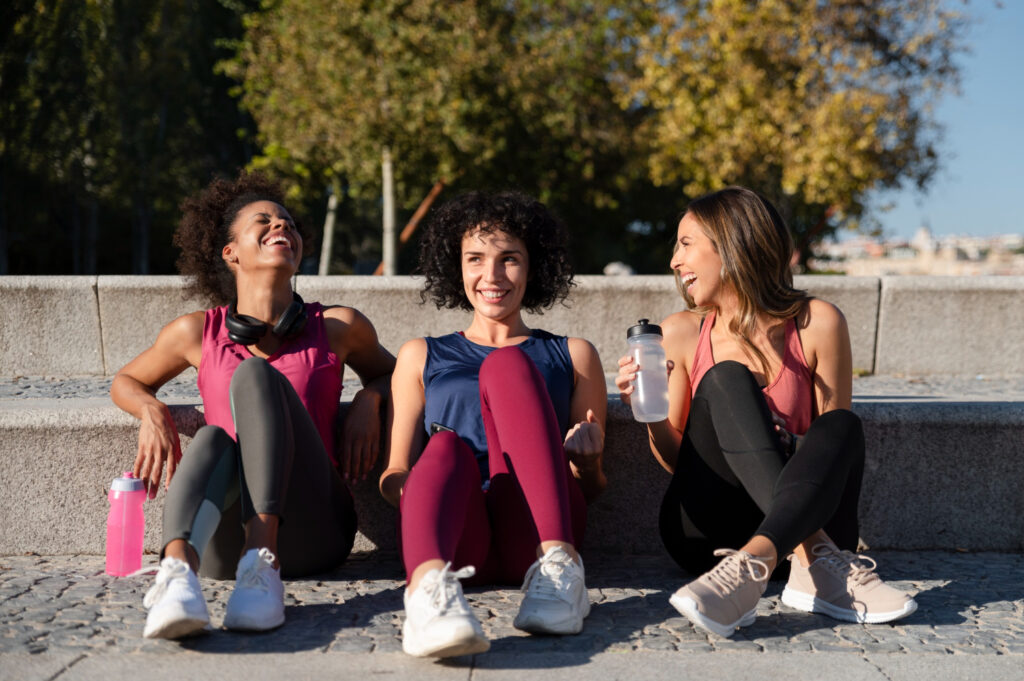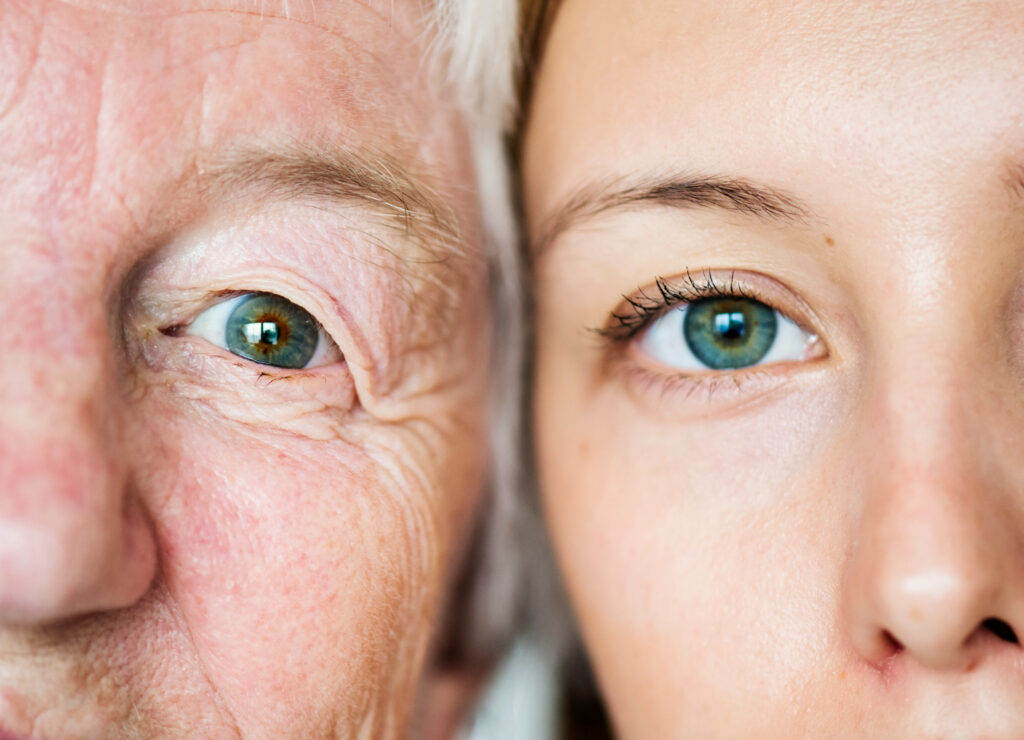We all know that woman. The one who seems to defy the rules of time. She’s vibrant, energetic, and somehow looks a decade younger than her actual age. What’s her secret? Is it just good genes, or is she doing something we should all be copying?
As it turns out, those who age gracefully aren’t just blessed with fantastic DNA (though that certainly helps!). They’re adopting specific daily habits that scientific research increasingly shows can significantly impact how we age—both inside and out.
The Aging Process: What’s Actually Happening
Before diving into solutions, let’s understand what we’re working with. Aging isn’t just about wrinkles and gray hair—it’s a complex biological process happening at the cellular level.
“Aging is essentially the accumulation of cellular damage over time,” explains Dr. Lisa Montgomery, a longevity researcher. “This damage affects everything from how your skin maintains elasticity to how efficiently your body produces energy.”
The good news? While we can’t stop aging entirely (and honestly, who would want to miss out on the wisdom that comes with experience?), we can influence how quickly and severely these changes occur.
Sleep: The Non-Negotiable Anti-Aging Ritual
Ever notice how a single night of poor sleep instantly shows on your face? That’s not your imagination.
“Sleep is when your body conducts its most intensive repair work,” says sleep specialist Dr. James Chen. “During deep sleep phases, your body releases growth hormone, which helps repair tissues and promotes cell regeneration.”
Women who appear to age more slowly prioritize sleep quality with these strategies:
- They maintain consistent sleep-wake cycles (yes, even on weekends)
- They create tech-free bedrooms, keeping devices out of their sleep sanctuary
- They optimize their sleep environment with cooler temperatures (65-68°F)
- They stop eating at least 3 hours before bedtime
- They incorporate relaxation rituals to signal to their bodies it’s time to wind down
According to a study published in the journal Sleep, women who consistently got less than 6 hours of sleep showed significantly more signs of skin aging compared to those who averaged 7-9 hours.
Movement: It’s About Consistency, Not Intensity
Here’s what the “ageless” women understand: exercise isn’t just about looking good—it fundamentally changes how your body functions at the cellular level.
“Regular physical activity actually increases the length of your telomeres,” explains fitness physiologist Emma Roberts. Telomeres are the protective caps on your DNA that shorten with age. “Longer telomeres are associated with longevity and reduced age-related diseases.”
What these women do differently:
- They prioritize movement they genuinely enjoy (making it sustainable)
- They incorporate both strength training and cardiovascular exercise
- They don’t obsess over intense workouts but focus on consistency
- They include recovery days and gentle movement like walking
- They exercise outdoors when possible, getting the additional benefits of nature exposure
A landmark study from Brigham Young University found that highly active women had cells that appeared approximately 9 years younger than their sedentary counterparts when measuring cellular markers of aging.
Nutrition: It’s Less About Dieting, More About Nourishing
The women who seem to age more slowly aren’t following extreme diets—they’ve simply developed sustainable eating patterns focused on nutrient density.
“The most powerful anti-aging diet isn’t really a ‘diet’ at all,” notes nutritionist Maya Patel. “It’s a consistent pattern of eating primarily whole, unprocessed foods that provide the nutrients your body needs for repair and regeneration.”
Their everyday approaches include:
- Embracing colorful produce (the more varied, the better)
- Including protein sources at each meal for tissue repair
- Incorporating omega-3 rich foods like fatty fish, walnuts, and flaxseeds
- Staying adequately hydrated throughout the day
- Practicing mindful eating rather than restrictive dieting
- Limiting ultra-processed foods and added sugars
Research from the Harvard T.H. Chan School of Public Health indicates that diets rich in antioxidants from colorful fruits and vegetables help neutralize free radicals—unstable molecules that damage cells and accelerate aging.
Stress Management: The Missing Piece in Most Anti-Aging Routines
Perhaps the most underrated factor in how quickly we age is our relationship with stress. Chronic stress accelerates aging through multiple pathways, including increasing inflammation and shortening those all-important telomeres.
Women who age more gracefully aren’t necessarily living stress-free lives (who is?), but they’ve developed effective coping mechanisms:
- They practice daily mindfulness, even if just for 5-10 minutes
- They set clear boundaries in both personal and professional relationships
- They prioritize activities that bring them joy and relaxation
- They cultivate genuine social connections
- They spend time in nature regularly
- They understand when to ask for help
A groundbreaking study from the University of California, San Francisco found that women under chronic stress showed cellular aging that was accelerated by up to 10 years compared to women with lower stress levels.
Social Connections: The Secret Anti-Aging Elixir
Those who age well understand something profound: meaningful relationships aren’t just nice to have—they’re essential for longevity.
“Strong social ties are one of the most consistent predictors of longevity across cultures,” explains sociologist Dr. Jennifer Martinez. “People with robust social networks experience lower rates of inflammation, better immune function, and even better cognitive preservation as they age.”
Women who age gracefully tend to:
- Maintain long-term friendships
- Participate in community activities or groups
- Nurture family connections
- Engage in meaningful conversation regularly
- Volunteer or help others
The famous Harvard Study of Adult Development, one of the longest-running studies on happiness and health, found that close relationships were better predictors of long, happy lives than wealth, fame, IQ, or social class.
Skin Care: It’s What They Do Consistently, Not What They Spend
While genetics play a significant role in skin aging, daily habits make an enormous difference. Women who maintain youthful skin typically follow these principles:
- They’re religious about sun protection (wearing SPF daily, not just at the beach)
- They focus on hydration both internally and externally
- They use evidence-backed ingredients like retinoids, vitamin C, and peptides
- They maintain a consistent routine rather than jumping between products
- They understand that prevention is far more effective than correction
“The women who maintain the best skin as they age aren’t necessarily using the most expensive products,” says dermatologist Dr. Sarah Williams. “They’re simply consistent with proven basics, especially sun protection, which prevents an estimated 80-90% of visible skin aging.”
Mindset: The Invisible Factor That Changes Everything
Perhaps most importantly, women who age beautifully approach aging with a fundamentally different mindset.
“Women who embrace aging rather than fight it often experience what we call ‘stereotype embodiment’—essentially, they don’t suffer from the negative effects that can come from dreading aging,” explains psychologist Dr. Rebecca Allen.
These women:
- View aging as gaining wisdom rather than losing youth
- Celebrate what their bodies can do rather than fixating on appearance
- Stay curious and continue learning new skills
- Maintain an optimistic but realistic outlook
- Practice gratitude regularly
Research from Yale University found that people with positive perceptions of aging lived, on average, 7.5 years longer than those with negative perceptions—a greater impact than not smoking or maintaining healthy weight.
Putting It All Together: Creating Your Own Timeless Lifestyle
The women who seem to defy aging aren’t following a secret formula—they’re consistently implementing evidence-backed practices that support cellular health, manage inflammation, and promote repair.
The good news? It’s never too late to start. Research shows that adopting these habits at any age can help slow—and in some cases, reverse—certain aspects of aging.
Start by choosing one area where you feel you could make a sustainable change, whether it’s improving your sleep, adding more colorful foods to your diet, or developing a stress management practice. Small, consistent changes ultimately create the biggest impact on how you age.
Remember, the goal isn’t to look 25 forever—it’s to live vibrantly, energetically, and healthfully at every age.

Disclaimer: This article is for informational purposes only and is not intended to provide medical advice, diagnosis, or treatment. The suggestions provided in this article are based on scientific research and expert opinions, but individual results may vary. Always consult with qualified healthcare providers before making significant changes to your diet, exercise routine, or lifestyle, particularly if you have existing health conditions. The information provided should not be used as a substitute for professional medical advice.
Sources: Harvard T.H. Chan School of Public Health, University of California San Francisco, Yale University, Brigham Young University, Journal of Sleep



